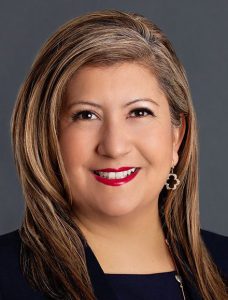Immigrant rights groups responded mostly with blistering condemnations to a new U.S. Senate supplemental funding plan that proposes major changes to U.S. immigration and asylum policies in exchange for military aid to Ukraine and Israel.
While the $118 billion measure includes funds for new border patrol agents, customs officers, immigration judges and security technology, it also grants the Department of Homeland Security “border emergency authority” to summarily expel or deny entry to nearly all asylum seekers without screenings during periods of heightened border encounters. The bill also gives the president power to shut down the border completely during immigration emergencies.
But the bill also protects the president’s ability to grant parole to immigrants already in the U.S., creates a pathway to citizenship for Afghan refugees who escaped the Taliban, authorizes an additional 250,000 immigrant family and employment-based visas and allows asylum seekers to work as soon as they are allowed into the country.
But the positives do not outweigh the negatives for most immigration advocates.

Marisa Limón Garza
“Although the bill contains small silver-linings, they come at too high a cost. This deal will ultimately subject more families to an unsafe migratory journey,” said Marisa Limón Garza, executive director of Las Americas Immigrant Advocacy Center in El Paso, Texas, and Ciudad Juárez, Mexico. “They will be forced to wait on the other side of the border for days or even weeks, which will further expose them to those who would prey upon them as they try to navigate these impossible policies.”
Tightening the border and limiting asylum availability “will do nothing to address the underlying issues that force vulnerable children and families to flee their homes, seeking safety and a better life,” she said. “We need long-term and sustainable solutions, including pathways to citizenship for DACA recipients, their loved ones and immigrant families. We urge congress and the Biden administration to reject this mistaken approach and use this opportunity to uplift their promise to restore humanity to our asylum system instead.”

Krish O’Mara Vignarajah
Global Refuge President Krish O’Mara Vignarajah urged Congress and the White House to consider the notion that border security and humanitarian protections do not have to be mutually exclusive.
“While bipartisanship requires political compromise, it does not require compromising our nation’s core values. Migration poses a complex challenge, but without robust humanitarian exceptions, summary expulsions risk violating international law enacted precisely to safeguard against the refoulement of vulnerable people back to danger,” said O’Mara Vignarajah, whose organization formerly was known as Lutheran Immigration and Refugee Service.
“Expedited work authorization would allow asylum seekers to more quickly support themselves, which as a standalone measure would stimulate local economies, alleviate labor shortages and relieve strain on receiving communities,” she said. “However, our concern is that moving the goalposts on initial asylum eligibility would ultimately deny protection to persecuted individuals and families based on increasingly arbitrary factors, and not on the merits of their claim,” she added.
World Relief praised the bipartisanship effort behind the bill and said it was good to see Congress stepping into its rightful role as the designer of immigration policy.

Matt Soerens
“This bill would allow for much faster adjudication of asylum requests and allow those waiting on asylum to work lawfully and provide for their families, addressing very serious current challenges,” said Matthew Soerens, vice president for advocacy for the international ministry. “But the provisions that would shut down asylum requests between ports of entry altogether at times of high arrivals are concerning, especially given the reality that limited capacity at ports of entry has often meant those fleeing a genuine fear of persecution must wait for very long times in dangerous situations to begin an asylum request there.”
The National Immigration Forum acknowledged the positive elements in the bill, including the pathway to citizenship for Afghan refugees, but added that a lot is missing.
“Conspicuous in their absence are solutions for Dreamers, people with Temporary Protected Status, and the farm workforce. No matter what happens with this bill, it cannot be the end of Republicans’ and Democrats’ courageous work together. Americans need and want more,” Forum President Jennie Murray said.
The #WelcomewithDignity campaign was less diplomatic in its assessment of the measure, warning it will inflict even more confusion and brutality on migrants at the U.S.-Mexico border.
“Over the years, the U.S. has ramped up its cruelty in an attempt to curtail the number of people arriving at its border.”
“Over the years, the U.S. has ramped up its cruelty in an attempt to curtail the number of people arriving at its border,” campaign manager Melina Roche said. “Adults and children have been put in cages, families have been separated, the border has been closed and, still, people continue to seek safety. People flee their home countries out of necessity. This bill will not stop people from coming; it will only lead to more cruelty and chaos at the border.”

Nicole Melaku
Nicole Melaku, executive director of the National Partnership for New Americans, condemned the bill as “a non-starter. Both the House and the Senate have failed to demonstrate genuine leadership and reflect Americans’ overwhelming support for a workable asylum and immigration system.”
The Senate chose to politicize the needs of vulnerable communities in the bill and failed to consult immigrant groups and the Congressional Hispanic Caucus in its deliberations, she said.
“Chipping away at our nation’s legal and moral obligation to provide asylum is a stain on our country’s legacy and long-standing need for immigration reform. We stand with our members and field partners to oppose this bill and urge our members of Congress to reject this bill and prioritize funding solutions that support welcoming policies and workable immigration pathways.”


